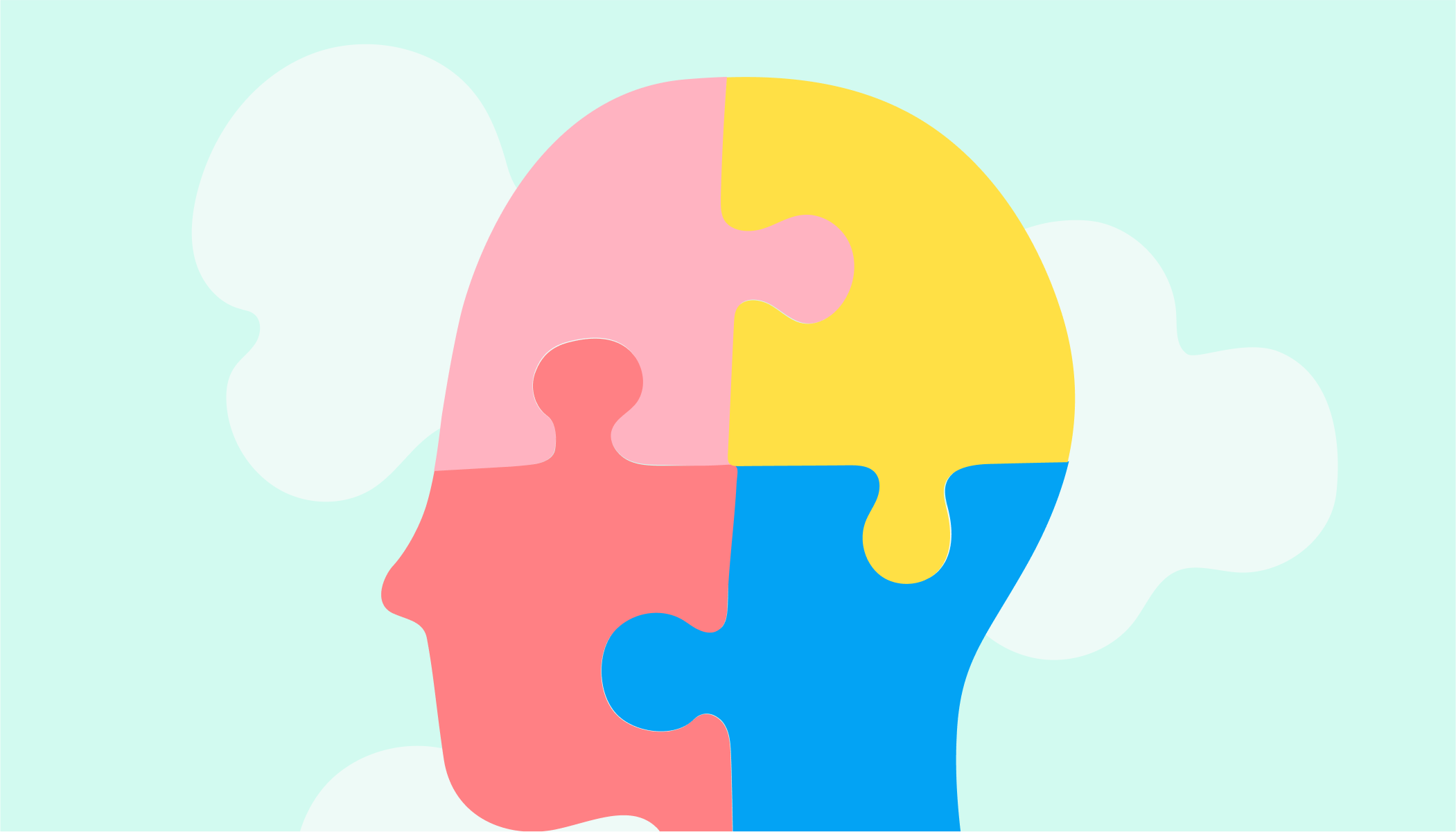Mental health conditions are incredibly common, with at least 1 in 4 people experiencing some form of mental illness at some point in their lives. It’s incredibly important to be able to talk about our emotional wellbeing as easily as we talk about our physical health – especially as the topic of mental health is becoming less taboo.
‘GPs take mental health just as seriously as physical health, and we genuinely care about your wellbeing,’ says Dr McClymont. ‘If you chat to your GP about your symptoms and what’s concerning you, we can advise you on how to deal with things that seem difficult.’
Mental illness can be a tricky thing to talk about. If it doesn’t feel like the right time to start a conversation with a doctor, this guide can help towards making the first step.
What do my mental health symptoms mean?
Mental health is a huge branch of medicine. There are various different symptoms people experience – and many things the symptoms might mean. Some of the most common mental health problems include:
Anxiety We all feel anxious at some point in our lives, from worrying about an exam or job interview, to going through life-changing events like having a baby. But if you find you’re feeling anxious without knowing why, or your anxiety is starting to affect your day-to-day life, then it could be time to take the first step and speak to a GP.
‘Anxiety can manifest in several ways,’ says Dr McClymont. ‘It can cause psychological symptoms like feelings of panic, racing thoughts or difficulty concentrating, and it can also cause physical symptoms like sweating, a racing heart or breathing rate, feeling dizzy or trembling.
‘If your anxiety is causing these kinds of symptoms, is affecting your mood, appetite or sleep, or impacting your relationships or work life, then it’s time to get advice from a doctor,’ Dr McClymont advises. If you have more questions about anxiety, you can find some answers to common questions around anxiety here.
Depression Everyone gets low from time to time, but we start to call that feeling depression when it seriously impacts your life. When we’re depressed, we may be aware of feelings of sadness, even despair, and we may feel lethargic, have disturbed sleep or eating patterns, and be generally less resilient in the face of normal knock-backs and life events.
Sometimes depression symptoms are manageable and pass with time, but sometimes they aren’t, and it’s important to get help – ideally before you reach a crisis point.
Problems sleeping Disturbed sleep, or insomnia, is closely linked with depression and other mental health problems – everything can feel just that bit harder in the middle of the night, or after a bad night’s sleep. Sleeping problems can make mental health worse, and vice-versa – it’s all too easy to get stuck in a spiral of depression and sleeplessness, and it’s important to get help if your sleeping patterns are affecting your emotional wellbeing.
How to prepare for a GP appointment about mental health
Sometimes it’s hard to remember exactly what we want to discuss with the doctor once we’re there. It can be helpful to prepare for the appointment so you can be sure you’ve covered everything you want to talk about.
Dr McClymont has 5 useful tips:
- Note down some key points you’d like to talk about. That way, if you start to feel forgetful in your appointment, you’ll have a list to refer to.
- If you’re not sure what’s making you feel low or anxious, keeping a journal of how you feel day-to-day might give you an insight into triggers or patterns.
- Make a list of any medications you’re taking, including any over-the-counter or herbal supplements. If you take any illicit drugs, the doctor really needs to know so they can help you plan the best ways to manage your mental health.
- Try and schedule your appointment for a time when you’re more likely to feel relaxed or alert.
- You can invite a friend or family member with you for support if you’d find that helpful. Sometimes it can even be useful for people close to you to talk to the doctor when they have concerns about your health.
What will happen at the appointment?
When you first see a GP about a mental health concern, they’ll need to ask you a series of questions about your mood, thoughts and behaviour. There are questionnaires that some GPs use, which will cover subjects like feelings of helplessness, whether or not you look forward to anything, what kinds of triggers you can identify, and anything in your lifestyle that might be causing problems.
The doctor will ask about other aspects of your health and medical history, and might also ask about any family history of mental health problems or related conditions.
‘Sometimes, talking about your feelings, traumatic events in your past, or your own triggers for mental illness can be difficult. Take your time, but do try to bring up anything you feel could be important, as it will help you get the right treatment,’ advises Dr McClymont.
The GP might also do some other quick routine physical health checks, like blood pressure and weight.
What might the GP do to help?
There are several different ways to approach mental health problems. The first step is to see whether there’s anything practical to do – if you’re in a situation which is causing you anxiety or depression, there might be ways for you to get out of that situation, or make it safer or easier to manage. Some of the triggers for mental illness need to be tackled head-on with practical solutions, so you may be asked about your current risk or history of trauma.
A GP might also suggest some lifestyle changes, and if relevant, talk to you about alcohol, smoking, drug use, and other unhelpful patterns of behaviour. Sometimes, something that starts as a coping mechanism can become unhelpful, or even harmful. A healthy diet, exercise and simply getting outside and socialising might be some of the simple, practical changes that can help.
There are also some treatment options that your GP can offer or advise on, including:
- Antidepressant medications
- Referral to counselling, Cognitive Behavioural Therapy (CBT), or other talking and strategy development therapies
- Recommendations for nearby organisations and charities that might be able to help
What other help is available?
There are lots of groups and organisations designed by people with experience of mental illness, to offer support and advice throughout difficult times. And if you’re able to talk about your mental health with friends or family, you might be surprised by how many of them can empathise, or even have similar experiences.
‘There are many different mental health charities available that are excellent at offering advice and further support if needed. If you have health problems that are affecting your work, it may also be helpful to talk to your manager or HR department. You don’t need to disclose more than you’re comfortable with, but it can give you another avenue for practical support,’ says Dr McClymont.
How do I know when to ask for help?
Mental health conditions are very common, and different people deal with them in different ways. If you find that you cannot manage your mental health well on your own, then it’s important to have a chat with a GP. It’s great if you can access support before you reach a crisis point, but if you do get to a stage where you are at serious risk of harming yourself or others, this is a medical emergency. Local urgent mental health crisis teams are available round the clock. Otherwise, A&E departments are experienced in mental health crises and have psychiatric liaison teams on site.
‘There are good treatments available for mental health problems, and getting help earlier can limit the impact that it has on you, your mood and the quality of your life,’ says Dr McClymont. ‘If you need specialised help for mental health, a GP can also refer you to a psychiatry team. Anxiety, depression and other mental health concerns are common, and nothing to be ashamed or embarrassed about.’
If you’ve previously been speaking to mental health teams and have deteriorating symptoms, call your relevant ‘crisis number’ to be seen quickly. If you’re having suicidal thoughts, call 111 or 999 for emergency help.



